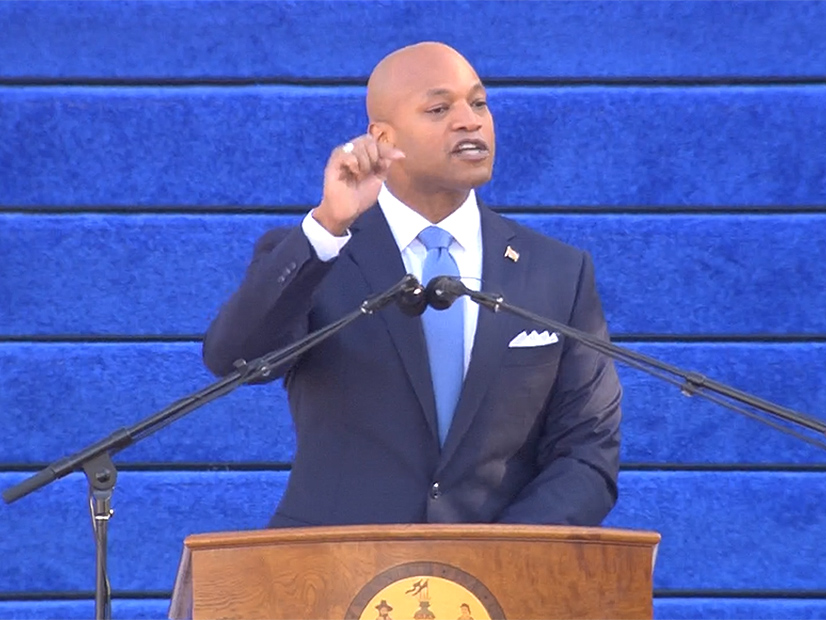Maryland’s new governor, Wes Moore (D), did not promise new climate goals in his campaign, instead endorsing the goals of the Climate Solutions Now Act of 2022, which Democrats enacted without the signature of former Gov. Larry Hogan (R).
But Moore may bring new urgency to addressing one of the key obstacles to reaching those goals: workforce development.
Moore, who was sworn into office Wednesday, pledged during his campaign to bolster the state’s career and technical education (CTE) programs by increasing funding and ensuring that “that partnerships with local governments, community colleges and specific employers … better link students to in-demand careers.”
Moore expanded on his plans in his inaugural address outside the Maryland State House on an unseasonably warm afternoon. Moore, the state’s first Black governor, was introduced by Oprah Winfrey.
“While Maryland is home to some of the best and some of the greatest institutions of higher education in this country — something we should be very, very proud of — we must end this myth that young people must attend one of them in order to be successful,” Moore said. “That’s not the path for every student. To be clear, it wasn’t my path. I joined the military when I was 17 years old. I went to a two-year college. And I think things worked out pretty well.”
Moore graduated with an associate degree from Valley Forge Military College before graduating Phi Beta Kappa from Johns Hopkins University. He later led a poverty-fighting foundation and a Baltimore-based business that helped underserved students.
His platform called for expanding access to CTE programs and investing in dual-enrollment programs that allow high school students to obtain college credits prior to graduation. He pledged to increase funding for apprenticeships and work with labor and businesses to “drive students into high-demand and high-paying jobs.”
He also supports a service year option for high school graduates in exchange for job training, mentorships and college tuition support, and he set a goal of producing 150,000 science, technology, engineering and math (STEM) graduates by 2027.
The Inflation Reduction Act signed by President Biden last year could create nearly 537,000 jobs a year for a decade, according to a study commissioned by The Nature Conservancy. But where those workers will come from is a major concern for policymakers.
Moore’s education plans are central to his vow to address the people “left behind” amid Maryland’s prosperity. “We know it is unacceptable that while Maryland has the highest median income in the country, one in eight of our children lives in poverty,” he said, rejecting the notion that “in order for some to win, others must lose.”
He also dismissed those who say climate change is not an urgent problem.
“We’re often told that climate change is a problem for the future, or something that you only have to worry about if you live in farmland or in a flood zone. But climate change is an existential threat. And it is happening now in our communities. And so confronting climate change represents another chance for Maryland to lead,” he said.
“Clean energy will not just be a part of our economy. Clean energy will define our economy and Maryland. But that requires everybody — companies, communities, state and local governments and the people — to take bold and decisive actions.”
The Climate Solutions Now Act increased Maryland’s emissions-reduction goals to 60% below 2006 levels by 2031 and net zero by 2045. (See Md. Climate Bills Become Law Without Hogan’s Signature.)
Cabinet Secretaries Named
Before being sworn in, Moore named his cabinet secretaries, including former California regulator Serena McIlwain as secretary of the environment, and Josh Kurtz, Maryland executive director for the Chesapeake Bay Foundation, as secretary of natural resources.
McIlwain had served as undersecretary of the California Environmental Protection Agency since 2019 after stints at the U.S. EPA, where she was director of the Office of Continuous Improvement and assistant regional administrator at the agency’s Region 9 office in San Francisco.
Kurtz worked previously at The Nature Conservancy.




